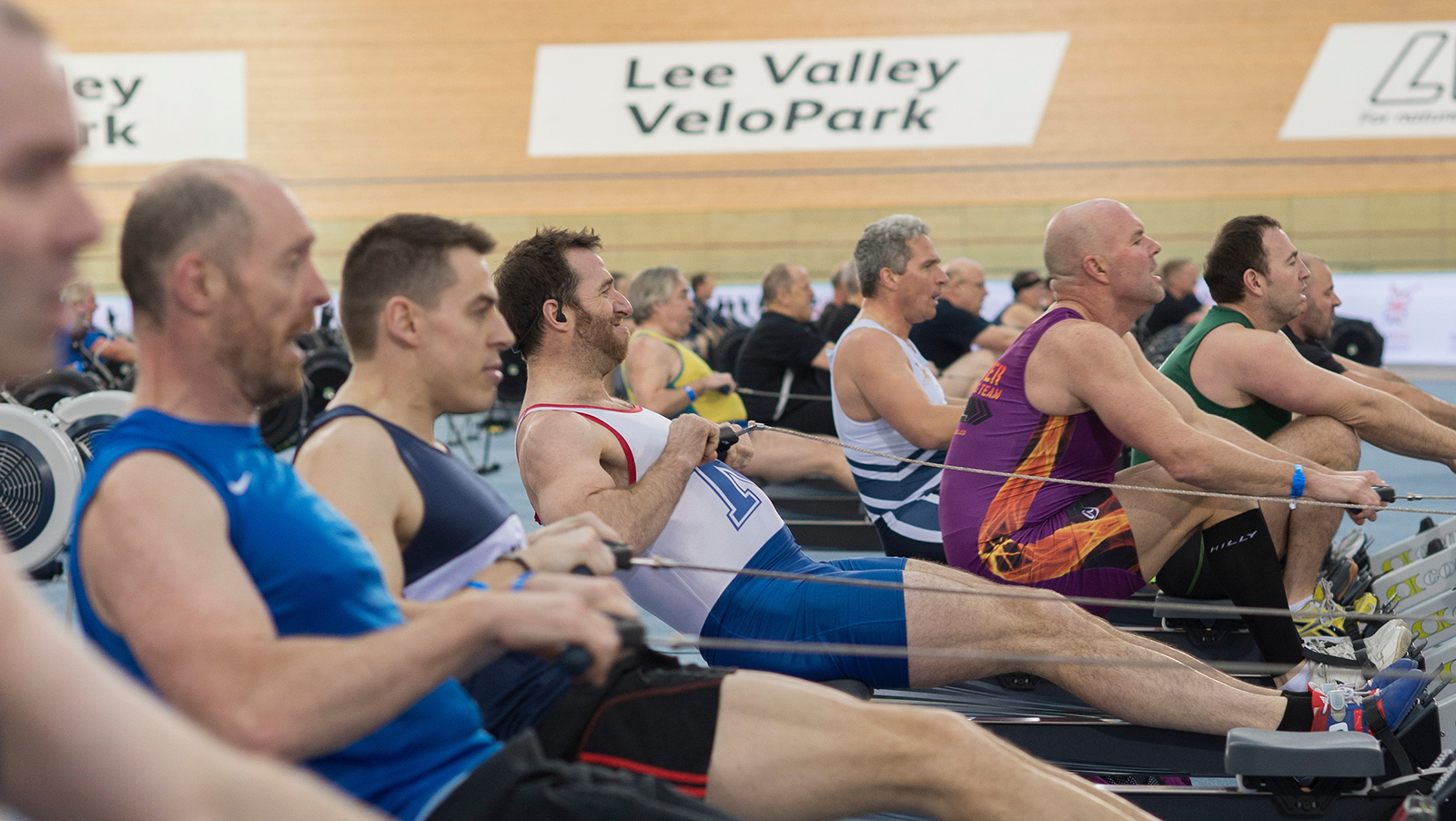Graham Benton’s top race day tips for BRIC
Who better to ask for race day advice than indoor legend Graham Benton? Twitter’s @TheErgDaddy talks tactics

Graham Benton (middle) at BRIC 2015 (photo: Peter Spurrier/Intersport Images)
So race day is nearly upon you. It’s a nerve-racking time whether it’s your first 2k, or your 50th. I’ve been racing at the British Rowing Indoor Championships for something like 14 years now and I’m still a bag of nerves before the race. But I’ve developed an approach that works for me to give me the best opportunity to perform on the day.
Firstly, make sure you allow yourself plenty of rest in the days before. By race day, you are where you are physically, and you’re not going to improve your score with any last-minute tough training. If anything, it is more likely you could make it worse if you’re fatigued for the race. A 2k isn’t an exam, and you can’t do any last minute ‘cramming’. Your last sessions should be short and sharp, with the focus on quality stroking at the required rate and split.
Be prepared
Ergo tests are stressful enough as it is, so do your best to get everything else about the day right so it doesn’t add to the stress. Plan your journey to the venue, and sort out your kit, food and drink the night before. Don’t forget the little things that we all come to rely on like headphones, playlists, heart rate monitor – if you wear one for racing, etc. Think about what you need for the immediate run-up to the race – any particular drinks you like, a specific final meal or snack, etc. But ultimately try and stay relaxed as best you can – it’s the same machine that you use all the time in your boat club, garage, gym, etc. Don’t let the change of surroundings faze you – it’s just you and the machine. Master that thought and the universe is yours!
>>> The science behind the perfect 2k test
To get the best erg score on any given day, have a clear simple race plan in your mind and barring disaster, stick to it. You’re not going to pull a miracle score out of nowhere, so look at your training, speak to your coach, and agree your target and keep it at the front of your mind.
Race plan
My tips for a race plan would be keep it simple. I go off hard for about seven strokes and then I am looking to find my target split and sit on it until at least 1250m gone. Then depending upon how I am feeling, I will build for home 750m out or leave it to 500m out. I’ve done lots of 750m intervals so, mentally, I just put myself in one of those sessions and find the metres really fly by.
I’m not a big fan of pushes, or complicated pace or rate changes. I focus on the next stroke and that is all.
It’s always useful to have a few mental tactics ready for when the difficult mental questions appear through the middle section. Remember key training sessions you have done or count the seconds down. I count the seconds from 1000m gone … nine seconds per 50m is 1:30 pace. Or if it gets really tough, count the strokes.
>>> ‘Hopefully what I did last year will inspire someone to give it a go and try and beat my score’
When you feel like stopping, ask yourself, ‘Can I do 10 more strokes?’ … the answer is almost definitely yes. Do it again if you need to. In my experience, there are only a few crucial really tough moments in a 2k and getting through a particularly challenging section can be key. What feels like an impossible task can feel like you’re romping home just 50m later.
What to eat
Two hours to go – cold pasta, normally tuna or chicken.
One hour to go – a few squares of chocolate.
40 minutes to go – a caffeine drink and ensure I’m well hydrated.
30 minutes to go – I stick to water as energy drinks / sports drinks can be a bit sickly.
Trust your training
Trusting in your training is key. The more aggressive your race plan, the more you need to believe in the preparation you’ve put in. If you’re not sure what shape you are in, then be conservative for the first kilometre then assess it. But your best score will come from committing from stroke one to stroke 200-odd, and you need to know what you are really capable of if you’re to deliver on that plan.
Good luck!







